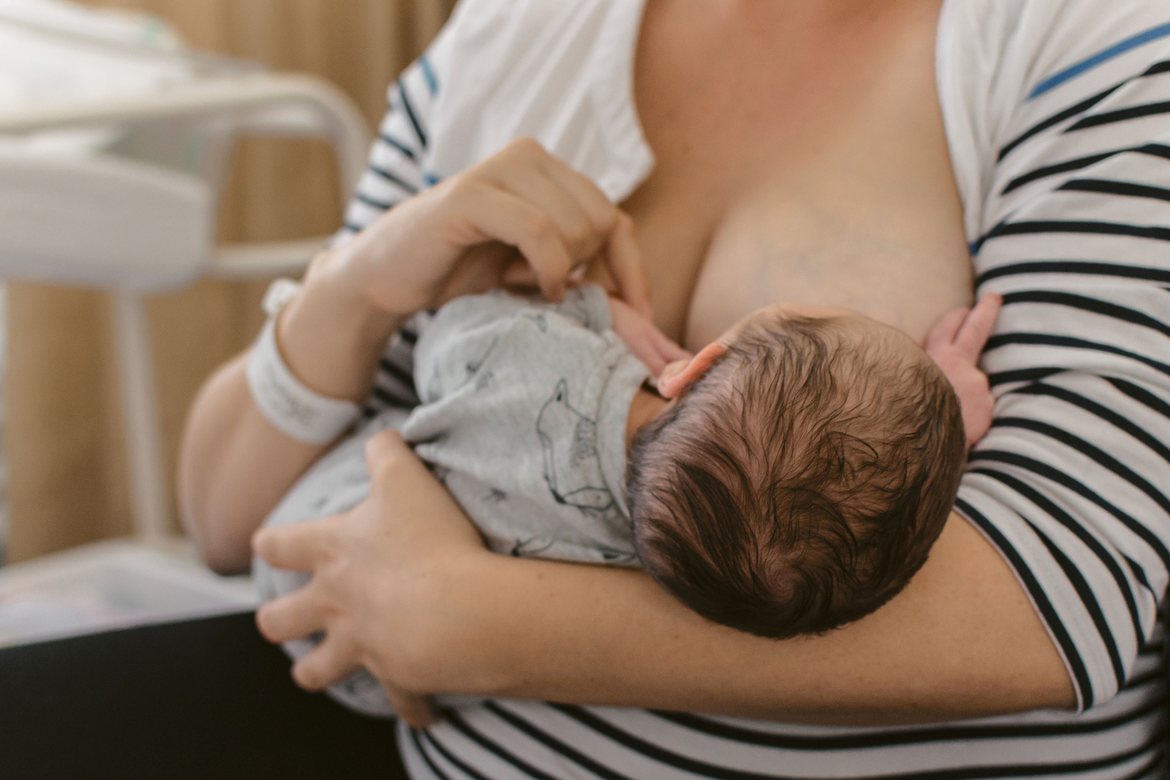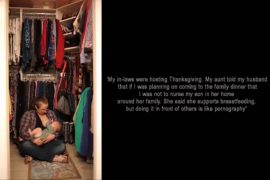By Sofie Eriksson
Tongue ties and small mouths…
I’ve had some heartbreaking disappointments with breastfeeding as I’ve written about before.
The pain of not being able to breastfeed my daughter consumed me and to this day, I still consider what went wrong and what I could have done differently!
Although never diagnosed, I do wonder if my oldest had a tongue tie. My daughter’s inability to latch was dismissed with the suggestion she had a “little mouth” and that I had a “large chest” and as a young, first-time mother who already doubted herself, I didn’t even question the logic behind that statement – a statement that stopped me from questioning and made me just do as I was told.
As I spent months trying to breastfeed my baby girl, I kept hoping her mouth would suddenly grow bigger and with this new super mouth she would latch on like a pro.
Ridiculous as it sounds, I was told very matter of factly by a midwife that this child my body had grown was somehow incompatible with her mother.
That although I was able to grow her from a tiny cell in to a beautiful, perfect baby, nature had been terribly cruel and made sure that we weren’t a good fit! What’s the likelihood of that?
Of course, it’s not impossible that we simply were a poor match! But as I’ve gone on to learn more about breastfeeding and completed my breastfeeding peer support training, I feel more inclined to believe that my daughter was indeed born with a tongue tie which went unnoticed despite the endless hours spent at a breastfeeding clinic. It wasn’t even considered nor fully investigated, although she had some of the more common symptoms associated with a tie!
She struggled to take a bottle of expressed breastmilk, had terrible esophagus reflux and even struggled to “latch on” to a soother. If a mother explained this type of scenario to me, the first thing I would have questioned is if the baby had a tie and I feel this is a question which isn’t asked enough.
A breastfeeding health professional once told me to not pay too much attention to the “current hype” of tongue ties. Ties were dismissed as the new “trendy” breastfeeding issue and were to be somewhat ignored if she was to be believed. This I find confusing to say the least as well as concerning. If this is the attitude of those who are supposed to support breastfeeding journeys, it’s no wonder we have breastfeeding rates that are pretty much non existant.
So is it really that ties are a sudden hype or have they in fact existed for as long as humanity, but as with a lot of breastfeeding knowledge, it’s been somewhat forgotten. Knowledge which would have been passed from generation to generation has been almost completely erased as a result of the socially pushed “bottle feeding culture“; and as such, we are having to relearn the most basic response of human nature.
Breastfeeding hasn’t gotten harder – we have forgotten how to do it.
I’ve read several accounts for historical “tongue ties” or the medically correct term ankyloglossia. It has been documented that in the past a tie would have been assessed soon after baby was born! The midwife would have been able to recognise it instantly and would even have separated it there and then, likely with a long, sharp finger nail.
Sounds primitive, doesn’t it? Yet it seems that this was actually a more efficient way to support both mothers and babies to have a healthy breastfeeding relationship!
The ties were separated and the babies went on to nurse effectively. Today, you need to have pain and issues. Baby needs to have slow weight gain or excessive weight loss and some even display symptoms of reflux and excessive wind. Both mother and baby must almost be at breaking point for a referral to be made to have the tie assessed and possibly separated.
This often takes a few more weeks, if you’re lucky enough to get one at all. No wonder women reach for the bottle in these times.
If it used to be so easy and resolved with little fuss. How come ties are now destroying breastfeeding relationships, leaving us with lower rates, distressed mothers and babies who are missing out on their mother’s milk? Why are we making things harder than they need to be?











